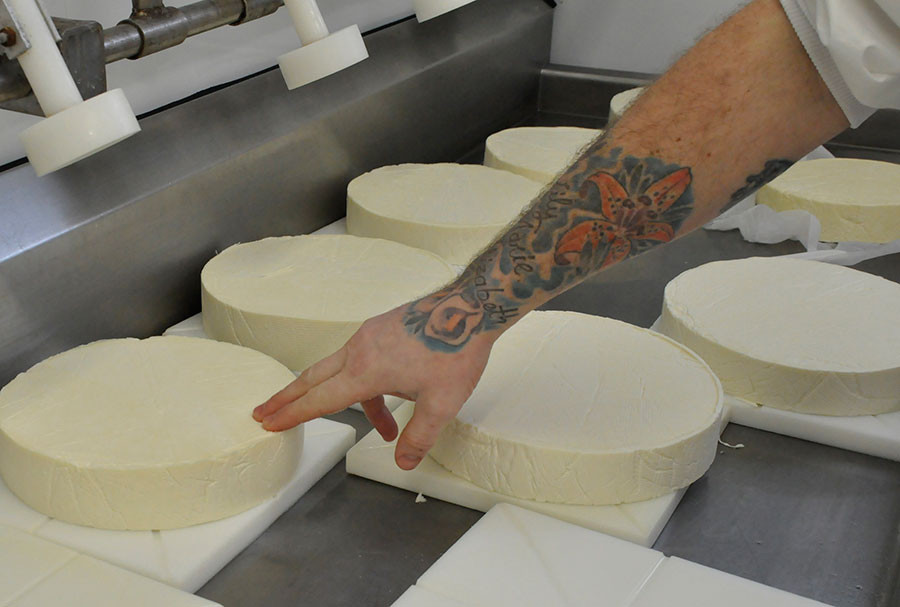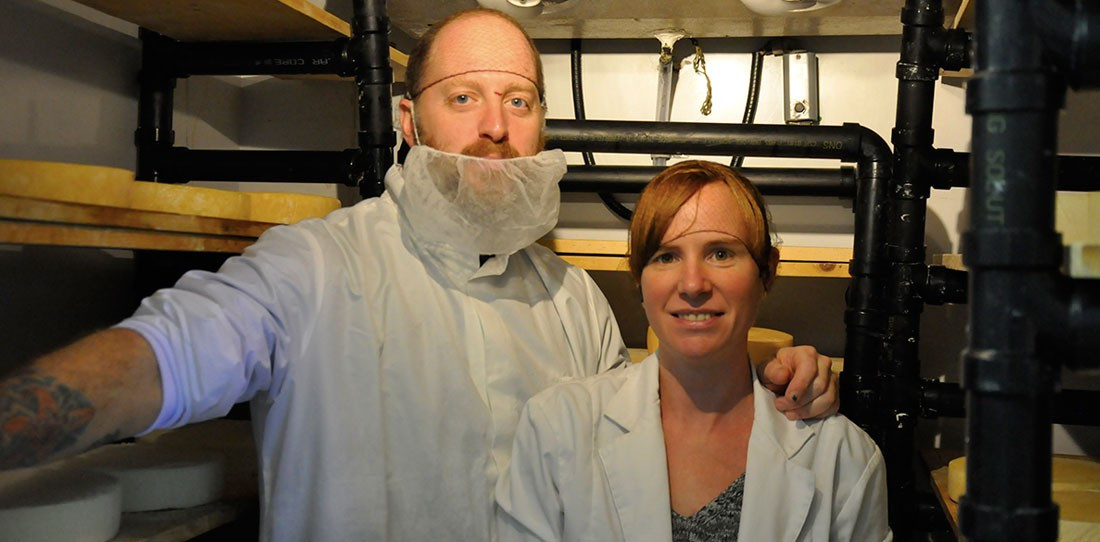Bureaucratic maze threatens Trappist cheesemaking tradition
Inconsistent regulation places strain on artisanal cheese producers
Dustin Peltier and Rachel Isaak run local cheesemaking business Loaf and Honey, and the duo says the Manitoba Government has cost them tens of thousands of dollars trying to conform to “inconsistent regulations” for artisanal, unpasteurized cheese.
Isaak and Peltier have dreams of producing cheese in the style of the Trappist monks, who have a long history of creating unpasteurized cheese in Holland, Man. The two worked with the last monk who knew how to make the cheese, and they now want to continue the tradition, for fear of seeing the end of the craft.
“The worst part is, I went to Manitoba Agriculture and told them what I was going to do. Usually, I prefer to ask for forgiveness rather than permission, but this time I tried to be upfront with them, and it cost us,” Peltier says.
The cheesemaking tradition of the Trappist monks in Holland, Man. is at risk of being lost because of inconsistent provincial regulations. // Supplied image
“We have seen a $70,000 loss as a direct result of Manitoba Agriculture. What about small businesses? We, in just this operation, support four other dairy farmers. Just think of the growth the local dairy community would see if we were given support.”
He adds that the ever-changing regulations are partially due to the absence of a dairy regulator at Manitoba Agriculture.
“The last representative retired and has not yet been replaced,” he says. Peltier also mentions that “they aren’t even consistent about what part of the government we deal with. We have been dealing with Manitoba Agriculture, but other cheesemakers deal with Manitoba Health.”
In an emailed statement to The Uniter, Manitoba Agriculture expressed concern about risks regarding foodborne illness and states that Loaf and Honey has been “unable to demonstrate through microbiological testing that the method they are using consistently produces a safe product.”
The pair explains that, as with breadmaking, certain bacteria need to occupy the air in the cheesemaking space, and, as more time passes, better cheese is produced.
“You must create an environment where the good microbes have the opportunity to overtake the problematic ones,” Peltier explains. He says that, in the early days, “Our counts were too high when we had the cheese tested by the University of Manitoba, but even after these counts were reported to Manitoba Ag, it took them months to come here. You would think, if they were (as) interested in public safety as they say they are, they would have been here right after they received those counts.”
University of Winnipeg food historian Dr. Janis Thiessen also appeals to the Trappist tradition when asked about pasteurization.
“Unpasteurized cheese has been produced successfully and safely in this province for decades by the Trappist monks,” Thiessen writes in an email to The Uniter. “Loaf and Honey, who were trained by the last Manitoba Trappist cheesemaker to take over this process, have been having considerable challenges carrying on this tradition. I support their petition.”
Although Isaak and Peltier have not given up, they do not have the remaining capital to continue making Trappist-style cheese without return. For now, they are focusing on other styles of cow and goat cheese, as well as professional catering.
Petitions in support of the business can be accessed by contacting [email protected].
Published in Volume 74, Number 16 of The Uniter (January 30, 2020)







